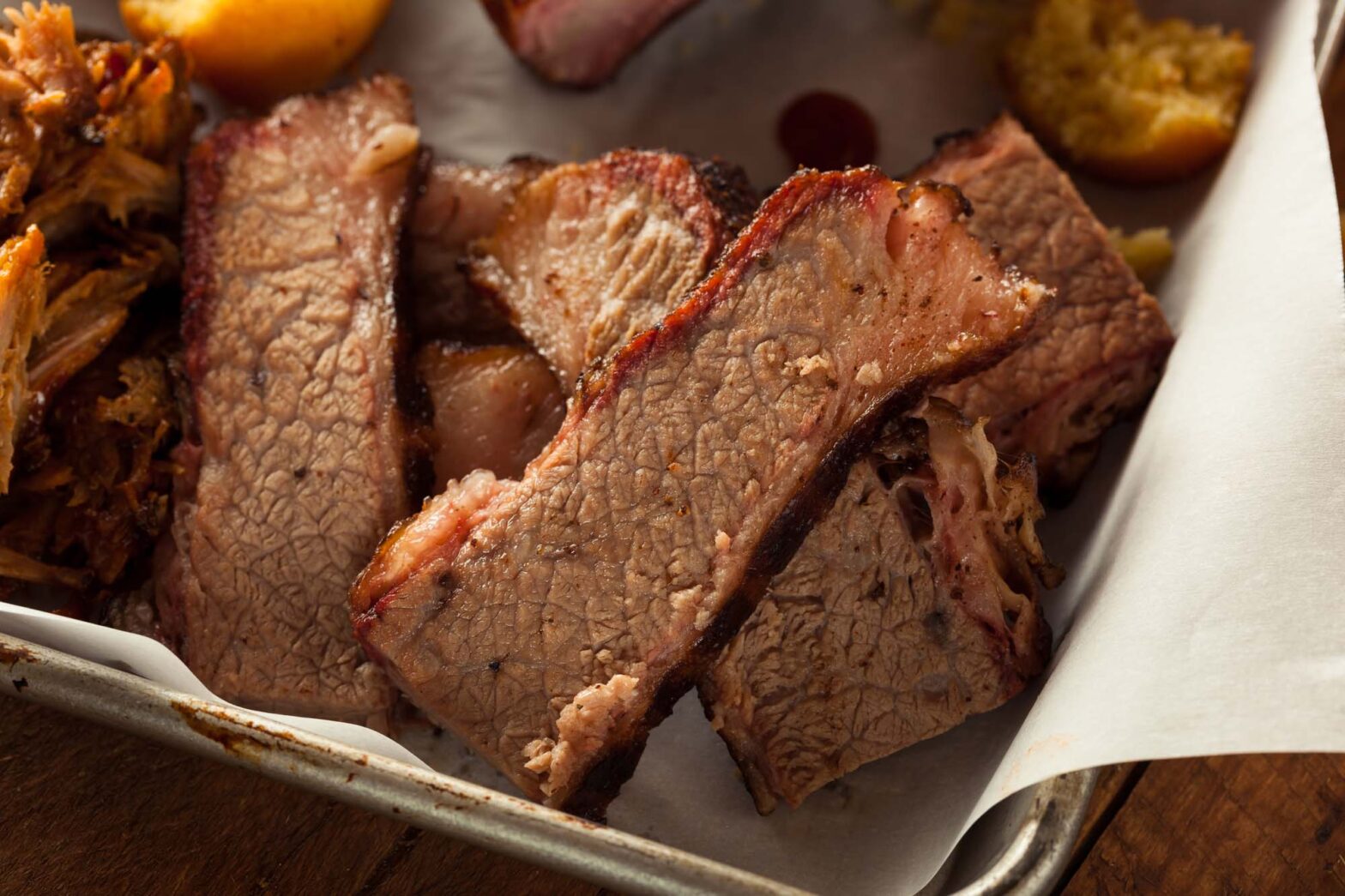So you bought a brisket from the butcher, wrapped it in paper, put it in the fridge, and kept it there a little too long than you should have. Or you smoked it, carved it, then refrigerated the leftovers in a storage container… where they’ve been sitting for a few days now.
Whatever the case, you’re here because your brisket—raw or smoked—started to smell off. And like any prudent outdoor cook, you found yourself wondering if you and your family could still eat it.
The long and the short of it below.
If your raw or smoked brisket starts to smell sour, this is a sign it’s probably spoiled and should be discarded. Other tell-tale signs of spoilage include a dull color and a slimy texture.
According to FoodSafety.gov, a federal government website managed by the U.S. Department of Health & Human Services, fresh beef will stay good for 3 to 5 days in the fridge and 4 to 12 months in the freezer.
Leftover smoked brisket, the website says, stays good for 3 to 4 days in the fridge and 2 to 6 months in the freezer. So store it properly, in a food storage container with the lid shut, and don’t take too long to eat it all up.
Related: Exactly how long smoked brisket lasts
This, of course, isn’t an exact science. And whether your brisket holds up on the higher or lower end of the spectrum depends on how fresh you bought it and how well your fridge or freezer can keep it at a constant temperature.
But it is a useful—and important—rule of thumb to abide by.
The importance of food safety cannot be understated. As outdoor cooks, we bear a responsibility not only to ourselves, but also to the people we feed with the meat we send to the table.
Few things can ruin an otherwise good cookout as much as everyone at the table getting a stomach ache or, worse, a few folks coming down with food-borne illness and needing an unpaid visit to the doctor.
Will Cooking Spoiled Brisket Make It Safe to Eat?
Contrary to what some people think, you can’t make a spoiled brisket safe to eat again simply by cooking it.
While it’s true that prolonged exposure to cooking temperatures of 140°F and above will kill most of the harmful bacteria on the surface of the brisket, it won’t get rid of the poisonous toxins that some of them have left behind.
For example, the University of Nebraska-Lincoln’s Institute of Agriculture and Natural Resources explains that Staphylococcus aureus (also known as “staph”) can form a heat-resistant toxin that cannot be destroyed by cooking, whether on the grill or in the smoker.
How serious of a threat is this, I heard some of you asking?
According to the Centers for Disease Control and Prevention (CDC), every year 48 million Americans get sick from food-borne illnesses. Of them, 128,000 end up hospitalized and 3,000 die.
When in doubt, throw the brisket out. Err on the side of caution and trust your senses. After all, they’re there to keep you safe. Off odors, discolored meat, and stickiness to the touch are not qualities you want to see in the food you feed to yourself, your family, and your neighbors with.
Some Important Tips for Food Safety
Buy your beef fresh, preferably from a local farmer or a butcher you trust. When you get it home, unpack it quickly and refrigerate or freeze it, then cook and eat it promptly.
Remember that raw meat can harbor pathogenic bacteria with all kinds of Latin names—Bacillus cereus, Campylobacter, Clostridium perfringens, Escherichia coli, Listeria monocytogenes, Salmonella, Staphylococcus aureus, Vibrio parahaemolyticus—that can cause food poisoning.
Wash your hands with warm soapy water after handling the raw brisket and sanitize the cutlery, cutting board, and butcher’s block or countertop that came into contact with it, as well as the sheet pan you used to carry it to the grill or smoker.
Always cook your beef to an internal temperature of at least 140°F. This goes without saying for beef brisket, which contains a lot of collagen and warrants a higher internal temperature for doneness. That’s why almost all recipes specify an internal temperature of 190-210°F as magic temperature for brisket.
Resting the brisket after it’s done cooking is a must. However, leaving it out for longer than 1-2 hours once it’s cooled down will encourage bacterial growth and make it unsafe to eat; package and refrigerate leftovers accordingly.

